When you take CBD oil with your prescription meds, something quiet but powerful is happening inside your liver. It’s not magic. It’s not hype. It’s biochemistry - and it can be dangerous if you don’t know what’s going on.
Why CBD and Your Pills Don’t Always Get Along
Your body uses a group of enzymes called cytochrome P450 (CYP450) to break down most of the medications you take. About 70 to 80% of all prescription drugs - from blood thinners to antidepressants to seizure meds - rely on these enzymes to be processed and cleared from your system. CBD oil, even in small doses, can shut down several of these enzymes like flipping a switch.This isn’t theoretical. In 2018, the FDA approved Epidiolex, a purified CBD medication for severe epilepsy, and included a black-box warning: "CBD can increase levels of other medications in your blood." That’s because CBD blocks CYP2C19 and CYP3A4 - two of the most important enzymes in the system.
What happens next? Your body can’t clear your other drugs fast enough. They build up. And that’s when side effects like dizziness, confusion, extreme tiredness, or even bleeding start showing up.
The Real-World Risks: Sedation, Bleeding, and Emergency Rooms
One patient on Reddit shared how their clobazam dose - a common anti-seizure drug - went from 600 ng/mL to over 1,050 ng/mL after starting Epidiolex. The result? They were so sedated they could barely get out of bed. Their neurologist had to cut the clobazam dose in half.Another patient took CBD oil with warfarin, a blood thinner. Within 10 days, their INR (a measure of blood clotting) jumped from a safe 2.5 to a life-threatening 5.8. They ended up in the ER needing vitamin K to reverse the effect.
These aren’t rare cases. A 2023 study of 217 people using CBD alongside prescription meds found that 34% reported increased sedation. For those taking drugs metabolized by CYP2C19 - like clobazam, diazepam, or some antidepressants - that number jumped to 58%.
The FDA’s own database shows 147 reports of sedation linked to CBD-drug interactions between 2018 and 2023. Nearly a third involved epilepsy medications. Almost a third involved benzodiazepines. That’s not coincidence. That’s a pattern.
Which Medications Are Most at Risk?
CBD doesn’t affect all drugs equally. It targets specific enzymes, and each enzyme handles certain medications. Here’s what you need to watch for:- CYP2C19: Clobazam, diazepam, omeprazole, clopidogrel, some antidepressants (like citalopram and sertraline)
- CYP3A4: Fentanyl, simvastatin, cyclosporine, some blood pressure meds, certain chemotherapy drugs
- CYP2C9: Warfarin, phenytoin, NSAIDs like ibuprofen (in high doses)
- CYP2D6: Metoprolol, fluoxetine, codeine, tamoxifen
If you’re on any of these, CBD can make them stronger - and more dangerous. Warfarin users are especially vulnerable. Even a small increase in blood levels can cause internal bleeding. One study found that CBD raised warfarin levels by up to 120% in some patients.
And it’s not just CBD. THC - the psychoactive part of cannabis - also inhibits CYP2C19 and CYP2C9. Most over-the-counter CBD oils contain trace amounts of THC. Even 0.3% can add up if you’re taking high doses.
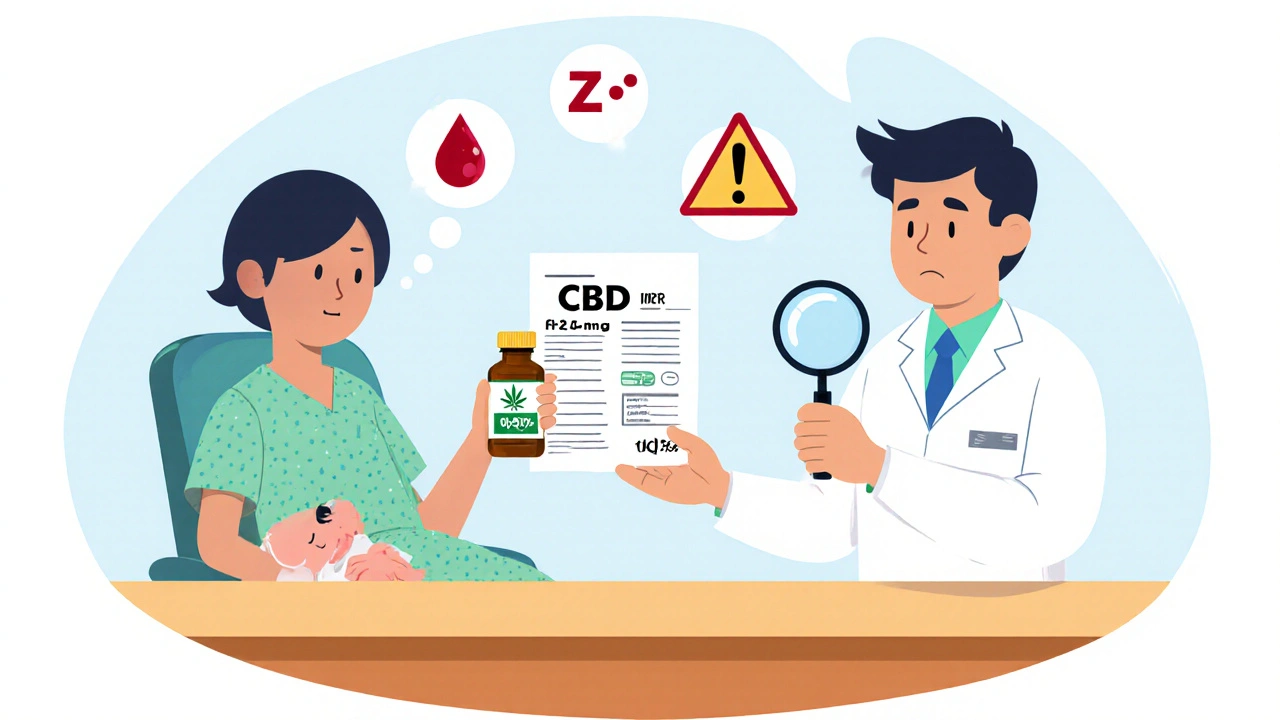
Why Dose Doesn’t Tell the Whole Story
You might think, “I only take 10 mg of CBD a day - that’s nothing.” But potency matters more than quantity.Research shows CBD inhibits CYP2C19 at concentrations as low as 0.03 micromoles per liter. Therapeutic blood levels of CBD - the kind you get from 25 mg or more per day - sit between 1 and 2 micromoles. That means even “low” doses can block enzymes effectively.
And here’s the kicker: most CBD products on the market don’t even contain what they claim. A 2022 study in JAMA Network Open found that 42% of products had less CBD than labeled, while 21% had more. Some had dangerous levels of THC. You can’t trust the bottle.
That’s why doctors can’t just say, “Take less CBD.” Without knowing exactly what’s in your product - or how your body metabolizes it - you’re guessing.
What Doctors Are Doing About It
The American Society of Health-System Pharmacists (ASHP) now advises avoiding CBD entirely with drugs that have a narrow therapeutic index - meaning the difference between a safe dose and a toxic one is tiny. Warfarin, phenytoin, and clobazam fall into this category.Hospitals like the Cleveland Clinic have created protocols. When a patient starts CBD, they:
- Check baseline levels of interacting drugs (like INR for warfarin or blood levels for clobazam)
- Retest within 3 to 5 days
- Adjust the prescription dose by 25% to 50% if levels rise
- Monitor for sedation, dizziness, or bleeding
Most cases - 78% - are fixed without stopping CBD. Just by lowering the other drug’s dose.
Some clinics now offer a Cannabis-Drug Interaction Checker - a tool that tells pharmacists and doctors which meds are risky to combine. It’s not perfect, but it’s a start.
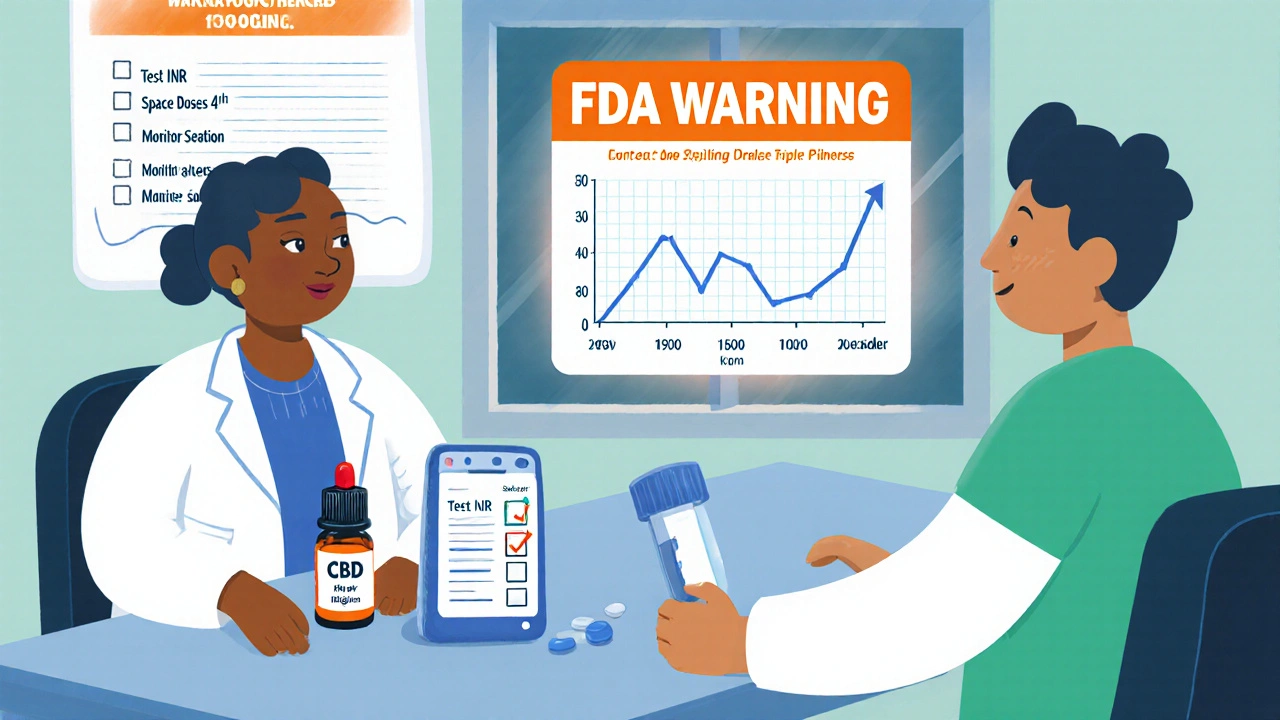
Can You Still Use CBD Safely?
Yes - but only if you treat it like medicine, not a supplement.Here’s how:
- Talk to your doctor before starting. Don’t assume it’s harmless. Bring the product label. Show them the ingredients.
- Ask for a drug level test. If you’re on warfarin, clobazam, or similar meds, get a blood test before and 3-5 days after starting CBD.
- Don’t mix with sedatives. Avoid combining CBD with benzodiazepines, sleep aids, or opioids. The sedation isn’t just drowsiness - it’s slowed breathing and risk of overdose.
- Choose products with third-party lab reports. Look for certificates showing CBD content, THC levels, and absence of contaminants. Avoid anything labeled “hemp oil” unless it specifies CBD concentration.
- Stagger doses. Take your medication and CBD at least 4 hours apart. It doesn’t eliminate risk, but it can reduce peak overlap.
There are exceptions. Some patients with chronic pain have used CBD to reduce opioid doses safely. One patient lowered their fentanyl dose by 40% because CBD slowed its breakdown. But that was done under strict medical supervision - with regular blood tests and dose adjustments.
The Bigger Picture: Regulation Is Lagging
The global CBD market hit $28.6 billion in 2023. In the U.S., 64 million people use it. But the FDA has never set standards for purity, labeling, or safety warnings on non-prescription products.In 2023, the FDA sent warning letters to 15 CBD companies for failing to mention drug interactions on their labels. That’s not negligence - it’s common.
Pharmacists in the U.S. are now required to complete 3 hours of continuing education on cannabinoid interactions. Medical schools are starting to include it in curricula. But most patients still walk into pharmacies and buy CBD like candy - unaware that it could be altering the effects of their heart medication, antidepressant, or seizure drug.
What’s Next?
Researchers are working on solutions. One company is testing a nanoparticle form of CBD that doesn’t inhibit CYP450 enzymes. Early results look promising. Another team is building an AI tool that predicts interactions based on your meds and CBD dose.For now, the safest approach is simple: assume CBD interacts with your prescriptions unless proven otherwise. Don’t rely on anecdotal stories or “natural” labels. Your liver doesn’t care if it’s organic. It only cares about the chemistry.
If you’re taking CBD and a prescription med, get tested. Talk to your doctor. Adjust doses carefully. Sedation isn’t a side effect you should tolerate - it’s a warning sign.
Can CBD oil make my blood thinner more powerful?
Yes. CBD inhibits the CYP2C9 enzyme, which breaks down warfarin and other blood thinners. This can cause your INR to rise dangerously - increasing your risk of bleeding. If you take warfarin, get your INR tested before starting CBD and again 3-5 days after. Your doctor may need to lower your warfarin dose.
Is it safe to take CBD with antidepressants?
It depends on the antidepressant. CBD can inhibit CYP2C19 and CYP2D6, which metabolize drugs like sertraline, citalopram, fluoxetine, and venlafaxine. This can raise blood levels and cause side effects like dizziness, nausea, or serotonin syndrome - a rare but serious condition. Always check with your psychiatrist before combining them.
Does full-spectrum CBD interact more than isolate?
Yes. Full-spectrum CBD contains THC and other cannabinoids, which also inhibit CYP enzymes - especially CYP2C9 and CYP2C19. CBD isolate has fewer interacting compounds, but it still blocks the same enzymes. So even isolate can cause interactions. The risk isn’t just from THC - it’s from CBD itself.
How long does CBD stay in my system and affect my meds?
CBD can stay in your bloodstream for 2-5 days, depending on dose and frequency. Its effect on CYP enzymes lasts as long as it’s present. That means even if you take CBD in the morning, it can still interfere with your nighttime medication. For safety, space doses at least 4 hours apart and monitor for side effects daily.
What should I do if I feel too sleepy after taking CBD with my meds?
Stop taking CBD immediately and contact your doctor. Extreme sleepiness could mean your meds are building up to toxic levels. Get blood levels checked for drugs like clobazam, warfarin, or benzodiazepines. Do not resume CBD until your doctor confirms it’s safe.
Are there CBD products that don’t interact with medications?
No CBD product currently on the market is proven to avoid CYP450 interactions. Even products labeled “broad-spectrum” or “THC-free” still contain CBD - and CBD itself is the main inhibitor. Some research is testing modified CBD molecules that don’t affect enzymes, but those aren’t available yet.
If you’re using CBD with prescription meds, you’re not just taking a supplement - you’re managing a pharmacological interaction. Treat it with the same caution as any new drug. Your body will thank you.

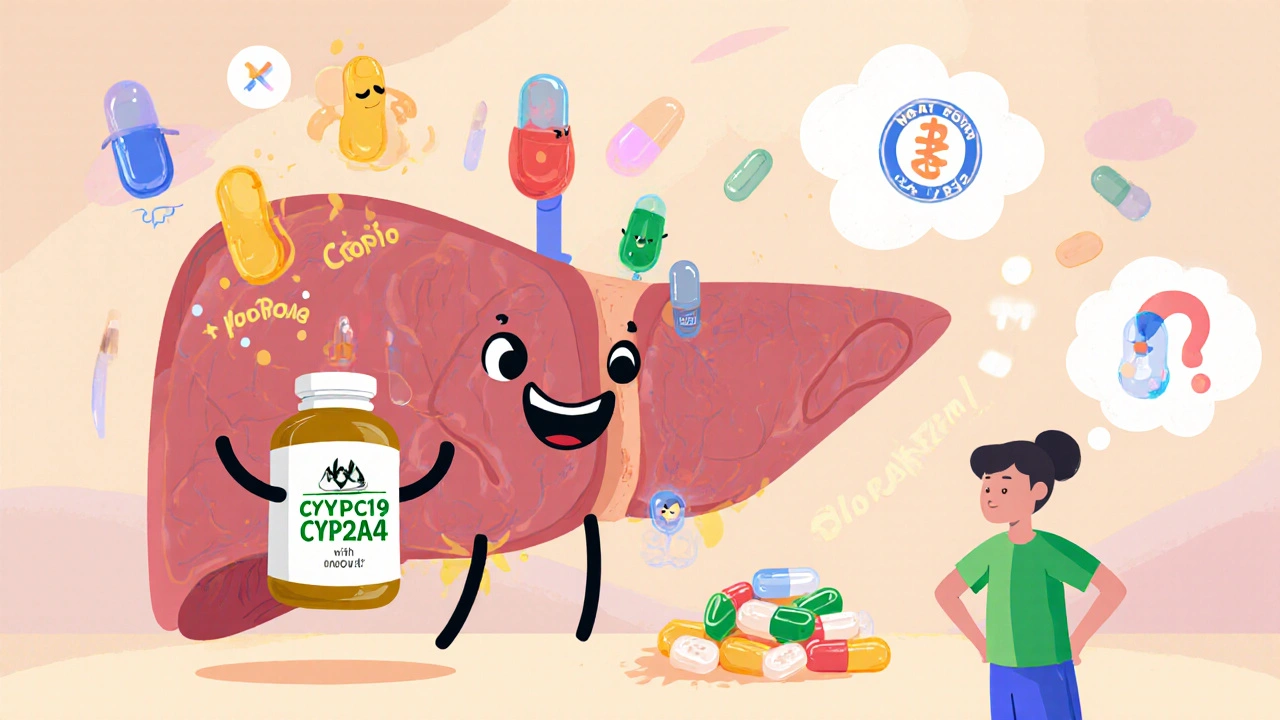
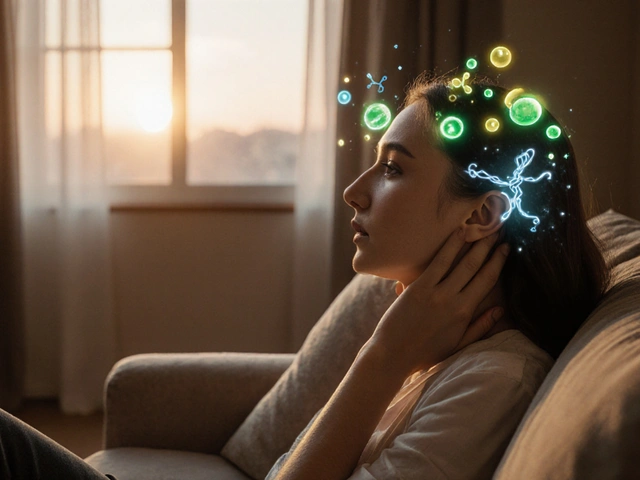
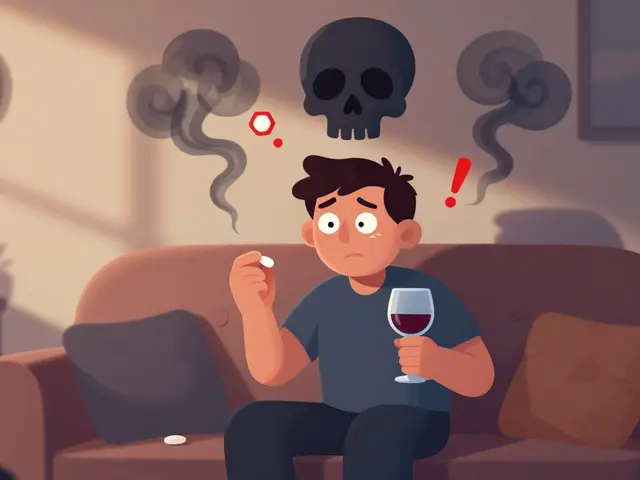
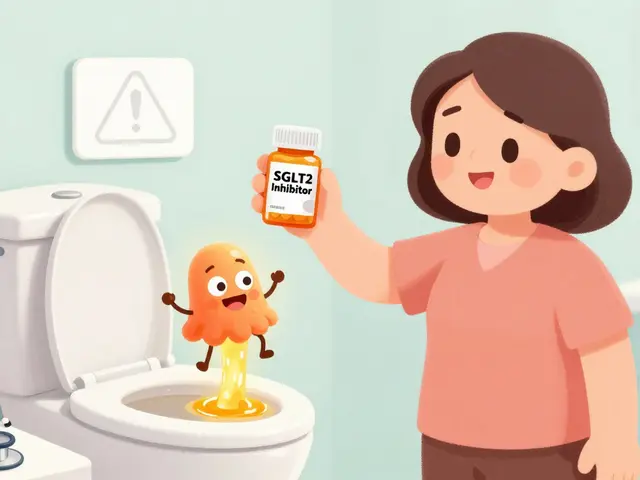
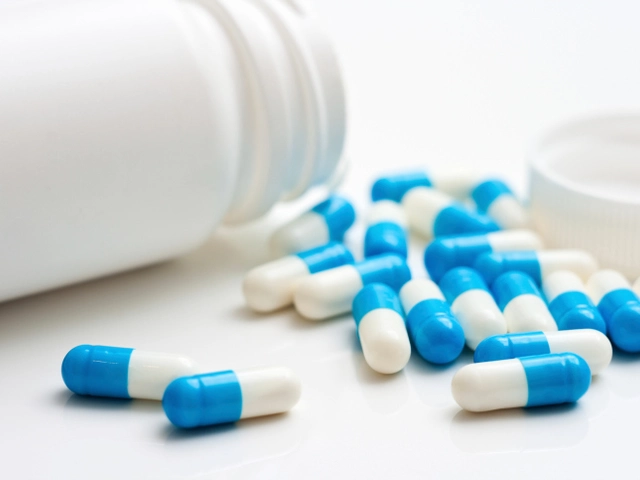
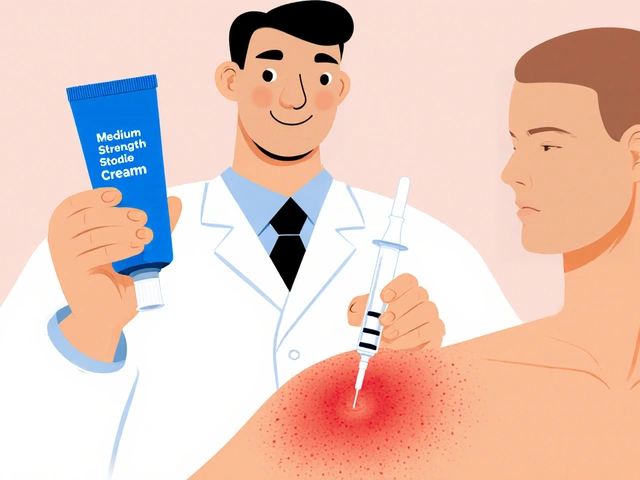
Comments(8)